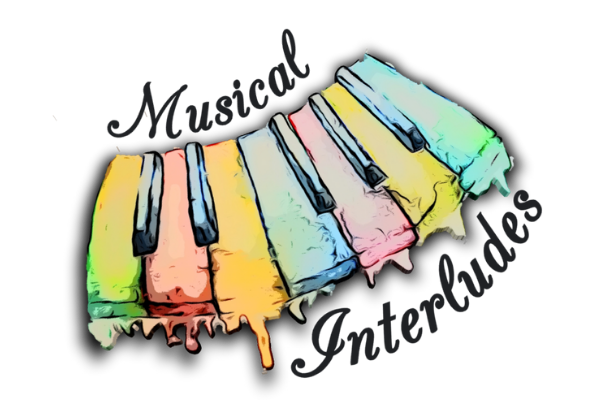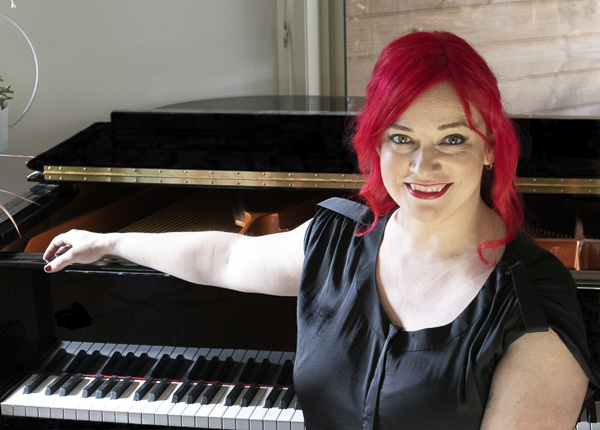There are many things to consider when starting out with Piano Lessons. First an foremost is that you’ll need an instrument to practise on. This may sound obvious however a piano is an investment and many people want to try lessons before they commit to an instrument. While this is understandable there are several reasons why this is flawed logic.
- Without practise there is no progress and without progress there’s no fun to be had. Lessons can initially engage students but until they can PLAY something the rewards can’t be seen. In your very first lessons at Musical Interludes you will leave being able to play 2 or 3 songs. The enjoyment of playing these provides the momentum to continue. When students come to lessons and have forgotten or not been able to play what was learned the week before it doesn’t take long for frustration and boredom to set in.
- Keyboards are not the same as Pianos . Whilst similar to each other in that they have the same layout they are in fact different instruments. They produce sounds differently and consequently require different techniques to play. Not all keyboards are suitable for lessons, please read on to find out the differences.
- Keyboard Apps – These apps display playable keyboards but are not acceptable for piano lessons. They can be useful for aural training, learning vocal melodies and theory but are not a substitute for a digital piano or acoustic piano as they do not train technique or playing ability.
- Toy Keyboards are not acceptable for piano lessons, they are to small and often are not tuned to concert pitch. They are fun for play but not suitable for learning on.
- Keyboards are not appropriate for piano lessons however are appropriate for group keyboard lessons. Keyboards are often limited in size and a minimum of 5 octaves is suggested for our group lessons. On a basic level they come in two types – touch responsive and non-touch responsive. Non responsive keyboard have light weight keys and are not able to play a range of volumes when depressing the keys. Touch response means they will sound softer when keys are depressed slowly and louder when depressed quickly. This teaches the student’s brain to relate sounds to what their hands are doing. It also allows some variation when playing, which makes for an enjoyable playing experience.
In summary: Keyboards are OK to start with in group lessons but do not give students a platform to develop their skills.
Digital pianos are a great option for lessons but like anything come in differing qualities. Like keyboards they reproduces a sampled piano sound, but because of their better sound samples and more powerful sound systems, digital pianos can achieve a good volume range and sometimes a good range of expression too.
- They have the benefit of taking up less space than a piano and do not need to be tuned or maintained in the same way. A good quality digital piano is preferable to a poorly maintained acoustic piano. They are great for composition and recording and provide a full range of sounds for experimenting. They also enable silent practise which can be a great bonus in smaller households or when placed in living areas. Plug in the headphones and practising away without disturbing anyone.
- Generally digital pianos are sampled from mid-range or high-quality traditional pianos. Each note is sampled at different velocities so that you don’t just hear a louder sound, but also the change in the character of the sound. Good pianos achieve a warm rich sound quality when they are played softly. As you get louder the sound should ‘come to life’ and become bright and brassy. Good digital pianos can give you an introduction to this tonal change and assist your child in developing their skills of expression and making real music!
- It’s essential to look out for a few features when shopping for a digital piano. Ensure the Digital Piano has 88 keys and a fixed stand for pedalling (two pedals minimum are required for lessons). Keys weighted more heavily are preferable as are built in speakers. Also listen to the keys themselves as you play. Cheaper digital pianos have clacking keys that are distracting and diminish the enjoyment of playing.
- If you purchase a good quality digital it will take you through years of lessons and has the added technological perks to explore.
- Acoustic Pianos If you are wanting to pursue music to highly advanced levels an acoustic piano is essential but they do not suit all spaces and budgets. While they are your best option this is ONLY if they are maintained and tuned. Pianos require tuning and servicing 1 or 2 times a year depending on humidity levels and weather etc. New pianos require more frequent tuning until they have ‘settled’. Playing on an untuned piano is not only dissatisfying but it is detrimental to learning aural skills and will inhibit progress. Much in the same way as a keyboard limits learning a poorly maintained piano will not enable students to connect sounds with what their hands are doing.
- When buying a piano second-hand avoid pianos that have been unused. A piano that has been used well and maintained is preferable to one that has been sitting untouched. I strongly recommend getting a piano technician to check out the piano first, there is no point buying a bargain piano if they have been poorly maintained. They charge for this service but often you can recoup part of the costs if you engage them as your tuner when you purchase a piano. When buying second-hand through a store many people still prefer to bring in a technician to examine the piano before purchasing. Note that the store should be offering a warranty with their second-hand pianos.
I have two pianos and one digital piano at the studio. My old Bernstein that’s seen a lot of love and many hours of practising as took me all through my own piano education and through university. I also have a new Schimmel piano who has a beautiful mellow studio sound and is a delight to play. All students begin lessons on acoustic pianos and the digital piano is also used in group lessons.
I love nothing more than shopping for pianos so please get in touch if you’d like assistance in purchasing something that is appropriate for your lessons.

